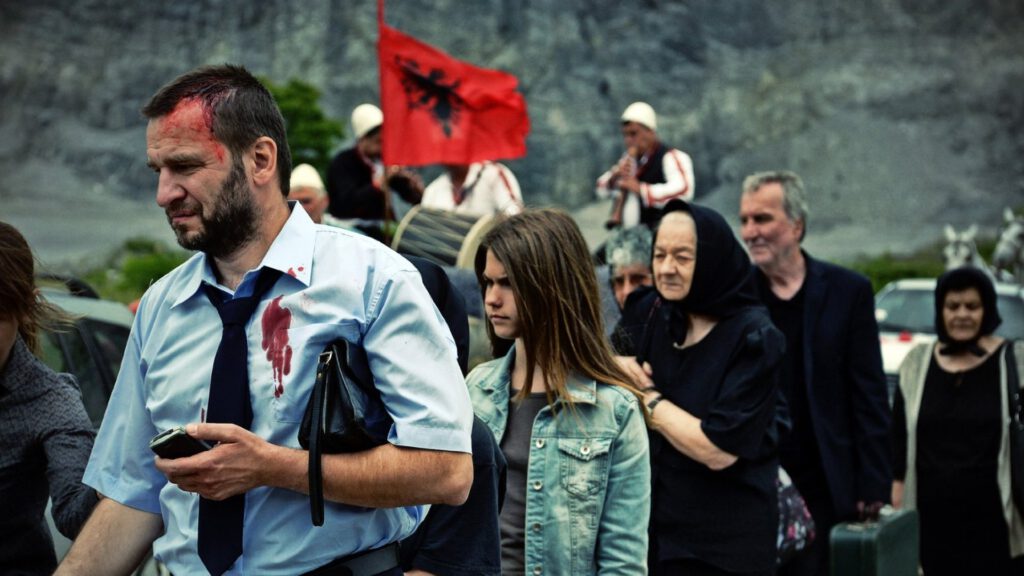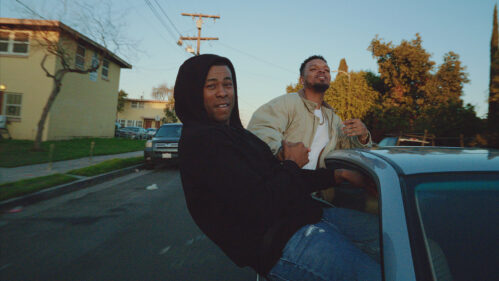National identity and
unity in wartime is the theme of three features in 3rd Annual Chicago Serbian
Film Festival, a sampler of festival fare from the Republic of Serbia. Presented as
a “celebration of the best in contemporary Serbian cinema,” seven titles–one
world premiere and four U.S. premieres–screen
December 4th through 6th at the Muvico Rosemont 18, 9701 Bryn Mawr Ave. in
suburban Rosemont, Illinois.
“Chicago is home to the largest Serbian community outside of
Belgrade,” states the Chicago Serbian Film Fest Society,
acknowledging aid from the Serbian Ministry of Foreign Affairs’ Directorate for
Diaspora and the Consulate General of The Republic of Serbia. Backers include
Serbian Radio Chicago, Serbian National Defense Council of America, and Sveta
Gora-Mount Athos Funeral Home.
A traveling smaller
version of the fest is slated for Washington, D.C. next week. An unrelated
Australian festival of Serbian films, now in its 15th year, screens at venues
in Adelaide, Brisbane, Melbourne, Perth and Sydney. Among festivals based in
Belgrade, there are showcases for queer, fantasy and underwater films, as well
as those for and by people with disabilities.
Of the three features
available for preview in this year’s Chicago Serbian
FilmFest, the best is “Enclave” by writer-director Goran Radovanovic,
screening on December 5 (8:45pm). Winner of an audience award at the Moscow
International Film Festival, it is Serbia’s entry in the Best Foreign-Language Film category for the 88th
Academy Awards.
Radovanovic dramatizes
the plight of Christian Serbs in a Kosovo enclave surrounded by Muslim
Albanians who vandalize a Serb bus and desecrate a Serb cemetery. With
evocative framing and editing, the 2004-set drama details the interpersonal
toll of the 1999 bombing that drove some 200,000 other Serbs from their Kosovo
homes.
Ten-year-old Nenad (Filip Šubarić) must take a NATO/ KFOR armored carrier to
and from school. He’s the sole student of
the Serbian teacher, until she relocates to Belgrade. The local orthodox priest
needs escorting by armed peacekeepers too. When “Enclave” screened
at Haifa Film Festival, Radovanovic told an Israeli site that at age 40 he went
back to the Orthodox Christian faith of his grandparents.
Nenad lives on a dairy farm with his bitter, brandy-swilling
father and ailing 80-year-old grandfather with a cache of illegal guns hidden
under his death bed. A wedding and a funeral will underscore universals among
neighbors vexed by murderous intolerance.
Radovanovic bookends “Enclave” with Nenad writing an assigned essay about his best friend. In
the opening scene, he call his grandfather his only friend. At the end, in a
new classroom, he can fill in that blank with the name of a Serbian boy who almost shot
him.

“No One’s Child,” directed by Vuk Rsumovic and screening
December 4th (9:15pm), is another tale of two boys in a time of Balkan
conflict. Like “Enclave,” this engaging drama is structured with
similar first and last scenes. This time it’s a boy and a wolf in a snowy woods
where there are men with guns. The interplay of those elements will change,
reflecting Balkan boundaries drawn between 1988 and 1992.
“Based on true events,” this allegory of barbarism tracks a feral boy
(Denis Murić, who played Nenad’s friend in “Enclave”)
found among wolves in the wilds of Bosnia. This pitiable figure of
statelessness is taken to a Belgrade orphanage where he’s befriended by another boy and learns to tie his own shoes, eat
with a fork and how to talk. The terrible irony is that he regains his humanity
at the moment when society turns beastly. A wolf may be his best friend, the
mountains his redemptive homeland.

Least subtle is “For
the King And Homeland,” Rados Bajic’s salute to the persecuted
patriots of World War II that screens December 4th (7:15pm). The script is
didactic. The performances are one note. The score is too sentimental. And the
lighting is glaringly plain.
An Air Serbia flight
from the U.S. lands in Belgrade bearing an aged resistance vet from the village
of Zaovine. He’s welcomed by a Jewish widow he long ago
rescued as a little girl. She and her grown granddaughter help him revisit his
haunts, amidst flashbacks to the tumultuous events between April 6 and
May 13, 1941.
Bajic ends with an
onscreen text: “By the end of The Second World War, hundreds of thousands
members and followers of the Ravna gora Movement were forced to leave the
country due to communist repression. Most of them never returned. This film is
dedicated to them.”
Tragic legacies of
forced emigration loom as recurring themes in the 3rd Annual Chicago Serbian
Film Fest. Go here for more information.












